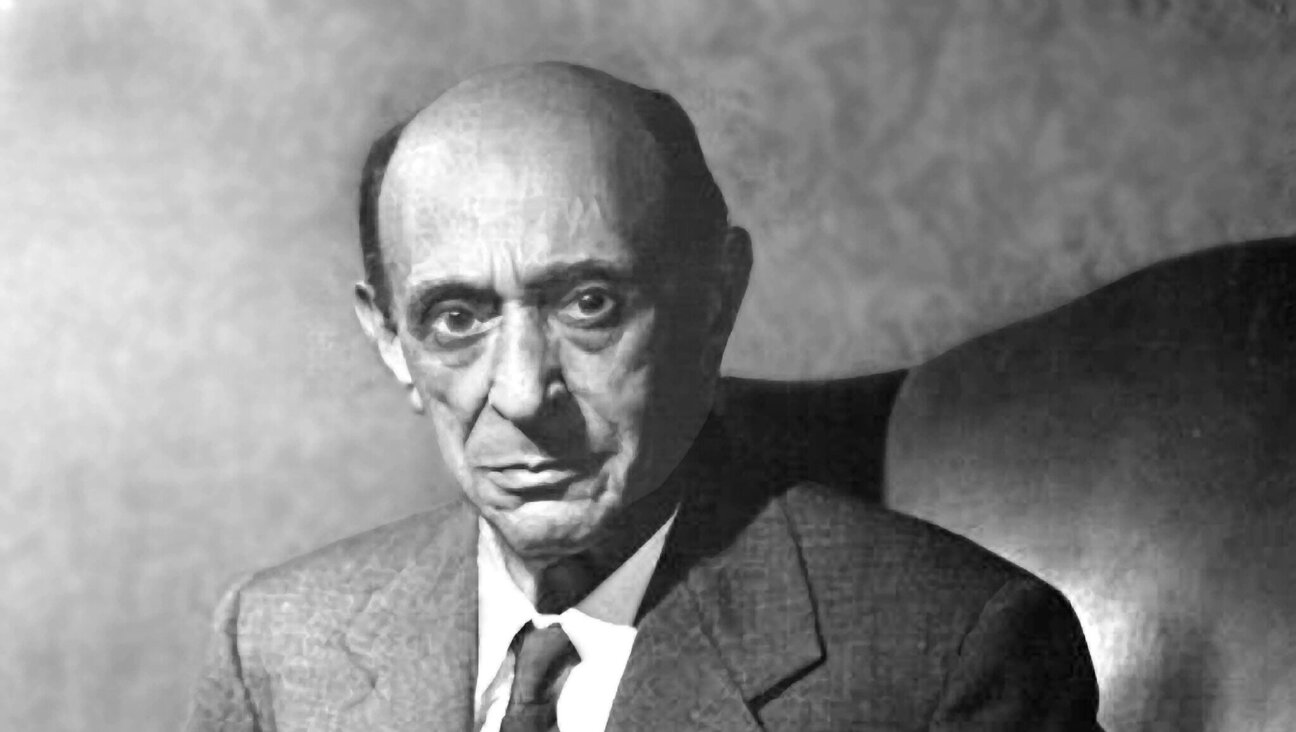How Arnold Schoenberg leapt into the future and created a new musical form
Known for being a cerebral theorist, the composer gave voice to human heartbreak

Known for being a cerebral theorist, the composer gave voice to human heartbreak

It’s Oscars weekend, and, for once, the often-predictable ceremony has the admittedly mild potential to be genuinely interesting. On the biggest night of Hollywood’s year, how will presenters, performers and award-winners address the ongoing revelations of pervasive sexual assault and harassment that began with The New York Times’s exposé on Harvey Weinstein? A surprising number…

As summertime slowly approaches, concerts of music both minimal and maximal will enchant Manhattanites in search of aural Yiddishkeit. On April 29 at the Walter Reade Theater, flutist Claire Chase will perform Steve Reich’s “Vermont Counterpoint” in its version for flute and tape; the alternate version, for eleven flutes, would doubtless exceed even the gifted…

The German Jewish philosopher Ernst Bloch (1885–1977), not to be confused with the Swiss Jewish composer Ernest Bloch, is still remembered for such landmark books as “The Spirit of Utopia,” “The Principle of Hope,” and “The Utopian Function of Art and Literature: Selected Essays.” As a philosopher, Bloch was influenced by Karl Marx and G….

An approaching New Year can be a time of rearrangements and transpositions, as Manhattan classical music lovers in search of Yiddishkeit will discover. From December 1 to 3 at Avery Fisher Hall, Gustav Mahler’s unfinished Symphony No. 10 in its revised Deryck Cooke performing edition will be conducted by Daniel Harding. Harding has recorded this…

One poet called autumn the “season of mists and mellow fruitfulness,” but some New York concerts redolent with Yiddishkeit focus on the pleasant shock of the new, not misty mellowness. On September 16 at The Austrian Cultural Forum, a new arrangement of the Adagio movement from Mahler’s unfinished Tenth symphony will be conducted in two…

The married painters Nancy Spero and Leon Golub fascinated their contemporaries by interweaving political themes into expressive artworks. As an individual creator, Spero finally received her full due in Christopher Lyon’s “Nancy Spero: The Work,” a lavish book out in October from Prestel Publishing. Lyon’s introduction explains the symbolic importance to Spero of texts such…

While Hanukkah preparations and aftermath can overshadow every other human activity in December, ‘tis also the season for classical concerts, especially although by no means exclusively, in the New York area. These can include much Yiddishkayt, despite the seeming omnipresence of Handel’s “Messiah.” Mahler-lovers will not want to miss the much-loved British conductor Sir Colin…




100% of profits support our journalism